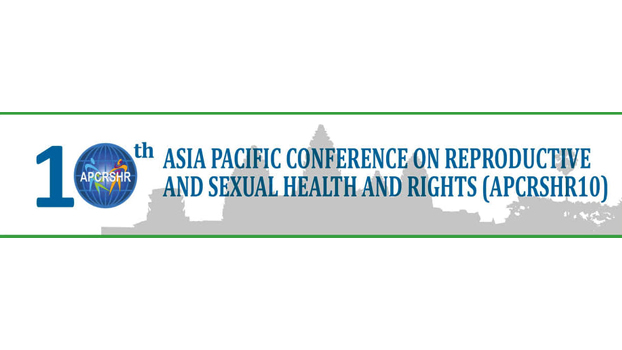Put attention on SRHR in pandemic for SDGs
The call was made at APCRSHR10

The 10th Asia Pacific Conference on Reproductive and Sexual Health and Rights (APCRSHR10) began on Monday virtually with a call to give special focus on SRHR related issues to achieve the SDGs.
“Covid19 has exacerbated all the barriers related to the sexual and reproductive health and rights (SRHR),” Prof Caroline Homer said, at the inaugural plenary of the conference participated by the countries of the region including Bangladesh.
She said: “SHSR is essential for human development and for sustainable development for the countries to reach SDGs. There are enormous links with the SRHS and gender equality and women well being. We know the impacts go far beyond the just now to the baby, child, adolescents, and to the next generation”.
Prof Homer is a leading midwifery researcher in Australia and has an international reputation as a scholar and leader in maternal and newborn health care and service delivery.
She spoke on the theme of "Addressing barriers to accelerate progress on sexual and reproductive health and rights in Asia and the Pacific".
The barriers that the women and girls face in getting sexual and reproductive health and rights services include lack of access, availability, affordability, acceptability, poor quality and limited opportunities, among others.
Prof Homer, however, said the context might be different from country to country and solutions will be different. “One size will not fit all.”
But to overcome the problems, she suggested keeping SRHS at the “center of focus and activate political will, promote, facilitate and enable advocacy.”
She also suggested “making the problem visible. Collect and use data and evidence and focus on the most vulnerable and the poorest”.
S M Shaikat, Executive Director of SERAC-Bangladesh, a youth focused rights and development organization, told Bangladesh Post that adolescents across the country are already facing the problems due to pandemic.
“COVID19 has compelled everyone to alter their lifestyle and so did to young people. Millions of adolescents across the country are struggling to reach reproductive service facilities, and commodities even when the unmet need of family planning among 15-19 years old married adolescents accounts for the highest at 17%,” he said.
“Taboo, cultural barriers and stoppage of school health programmes are risking their lives with unplanned pregnancies which together with the global supply chain disruption will affect the reproductive health rights of this vulnerable group of young people.”
To encounter this situation in Bangladesh, Shaikat suggested “a forecasting plan adapting with the traditional service modality, and increase of outreach both online and offline needed to be prioritised.”
The WHO earlier asked countries to strike a fine balance between protecting health, minimizing economic and social disruption and respecting human rights during the pandemic.
The director general said when health systems are overwhelmed, countries need to make difficult decisions to balance the demands of responding directly to Covid19 while simultaneously engaging in strategic planning and coordinated action to maintain essential health service delivery.
Since the provision of many services become more challenging, the WHO suggested “prioritizing essential health services and adapting to changing contexts and needs. Optimize service delivery settings and platforms.”
WHO also said countries should incorporate the essential service into universal health coverage, paying social to the poorest and the most vulnerable people. Countries must also take actions beyond the health sector to change social norms, laws and policies to uphold human rights.
Prof Homer said the most crucial reforms are those that “promote gender equality and give women greater control over their bodies and lives”.
“Improvement of people’s well being depends on individuals’ being able to make decisions about their own sexual and reproductive lives and respecting the decisions of others,” she said, adding that strong SRHS has roles in shaping future economic development, giving examples of the developed countries.
“These are not just women rights and women issues. These are everybody's issue.”
The conference will be held through 14 sessions – one in every fortnight till December. APCRSHR10, and Reproductive Health Association of Cambodia (RHAC) and CNS are co-hosting those online sessions.




